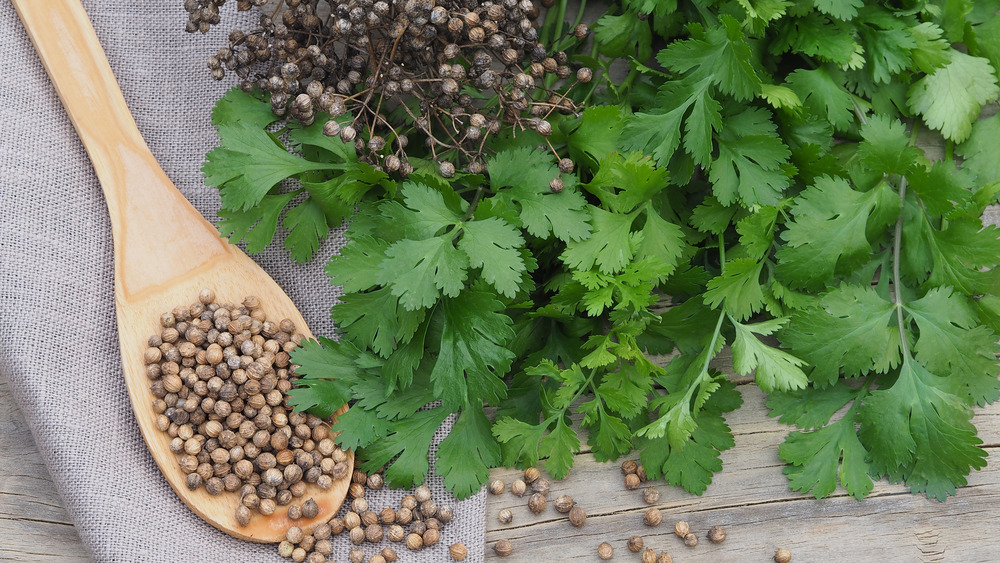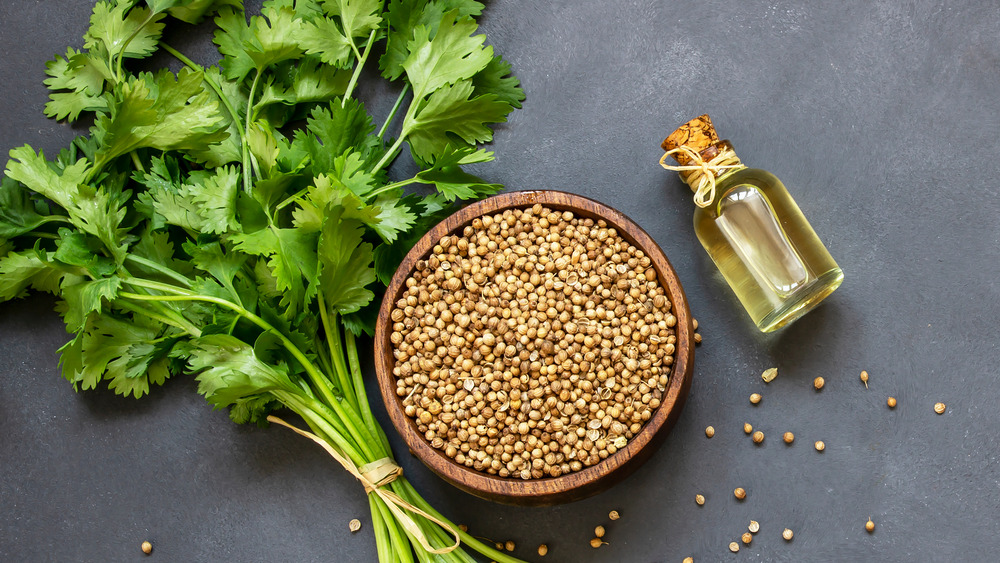This Is The Proper Way To Store Coriander
While we typically know coriander as a spice, the word "coriander" can actually refer to the leaves, stems, and seeds of the plant (via The Spruce Eats). Cooks might refer to the leaves as cilantro (the Spanish word for coriander), but the truth is that it all stems from the same plant. While a little bit of food knowledge is tasty, do you know the proper way to store that lemony, floral spice? Since there are multiple parts of the plant involved, each portion has a preferred storage method.
As explained by The Spruce Eats, both coriander seeds and ground coriander should be stored away from heat and light. While it is best to store these items in an airtight container, the reality is that the food spice doesn't last forever. Per Wide Open Eats, ground coriander and dried coriander have a shelf life of two to three years. For the fresh leaves, aka the cilantro, The Spruce Eats recommends storing it in the vegetable crisper, in a closed bag. Another method recommended by Food Network is to store the cilantro in a jar of water with a loose covering over the top. This method can keep the cilantro fresh for up to a month. And, if that fresh cilantro won't be used quickly, it can be frozen. Food Network recommends chopping the leaves and stems and adding them to an ice cube tray with some water or oil olive. Since all parts of the plant are usable, no part should go to waste.
Tips for freezing your cilantro
The Spruce Eats also recommends a method of freezing your cilantro that involves placing it inside two freezer-safe bags. They suggest washing and drying the plant beforehand and removing the leaves from the stems. Of course, when you're freezing cilantro, no matter the method, the herb works best in dishes where the plant is really blended in. In other words, if you want a garnish, that's a job for fresh cilantro.
Fried or dried, cilantro isn't for everyone. While grandma might have used the old line about washing your mouth out with soap, some people think of that comment when eating cilantro. Even Ina Garten admitted that she strongly dislikes the ingredient because it tastes like soap (via VICE). Unlike the child who refuses to eat broccoli just because, there is a real reason why cilantro has an offensive flavor to some people. It is scientific.
According to Britannica, some people have a genetic predisposition to be more acutely aware of the aldehydes in cilantro leaves. That characteristic allows them to pick up on the "soapy" qualities in both aroma and taste. While cilantro is found in a variety of recipes and cuisines, MyRecipes suggests using parsley as a substitute. It might not have the exact same flavor, but it is an alternative for people who would prefer to keep soap flavors off their plate.

